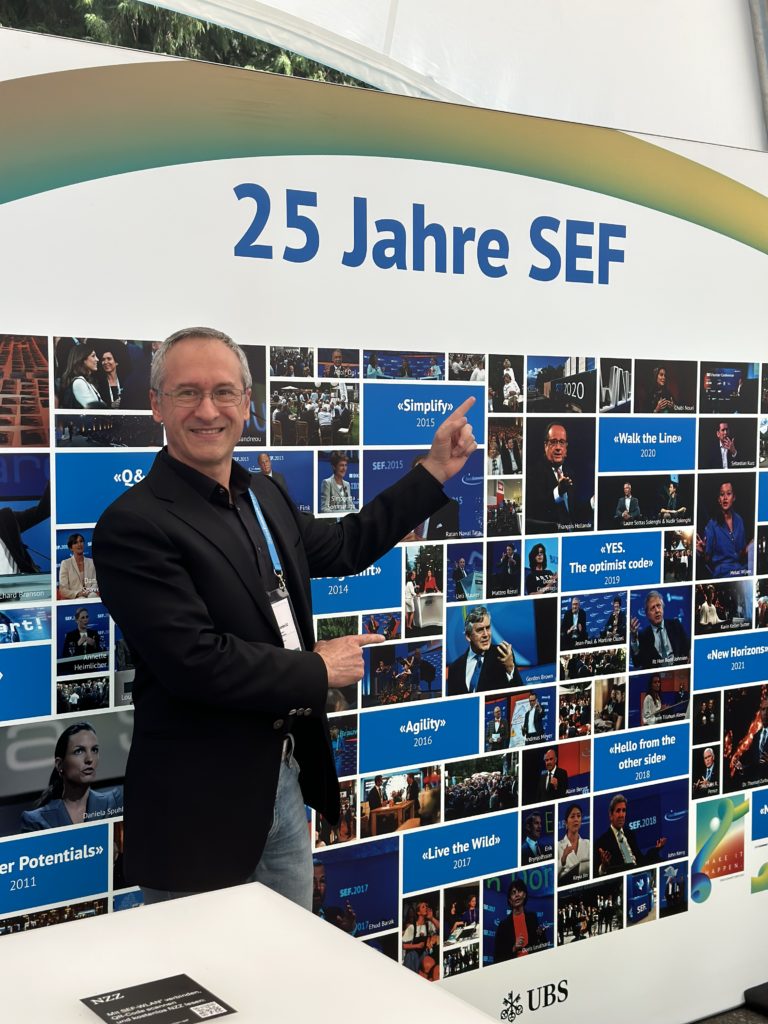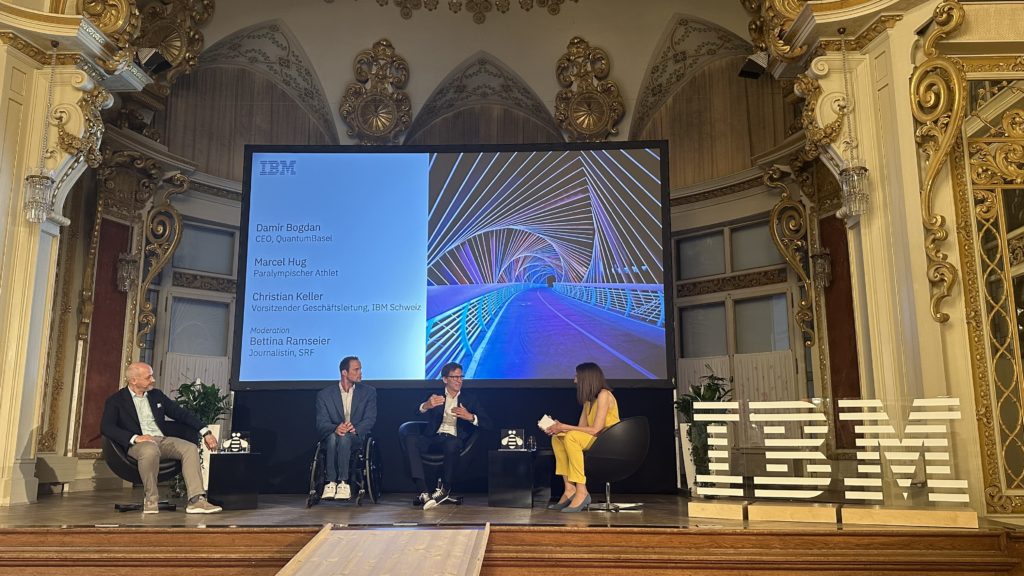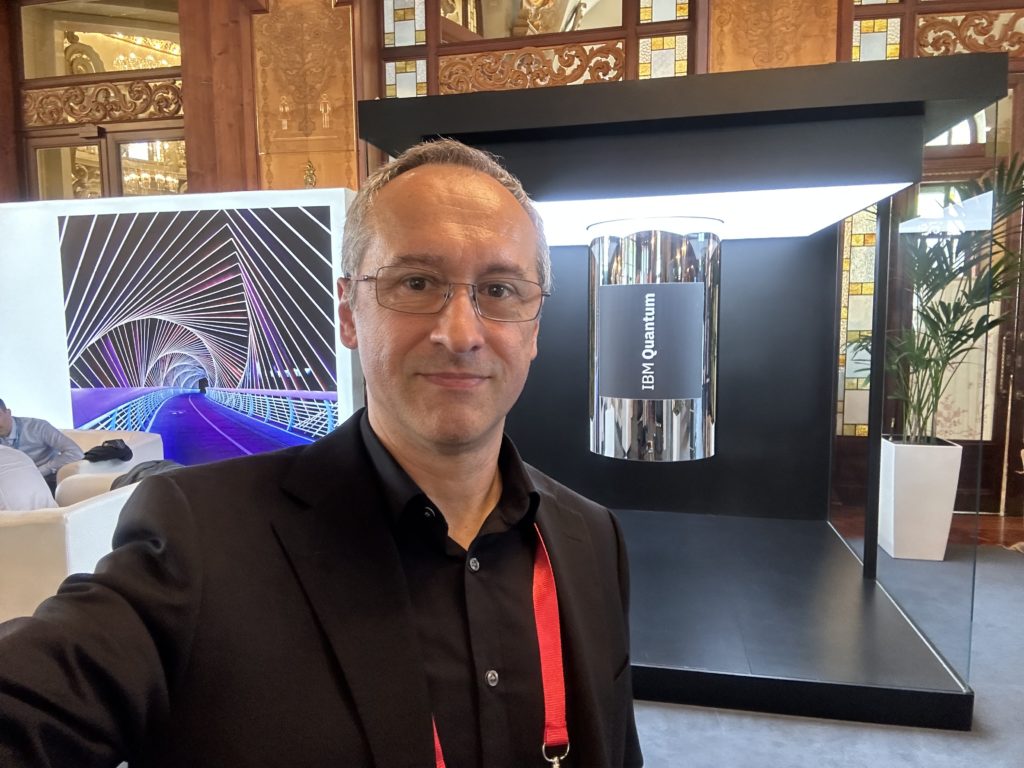 I am very grateful for the opportunity to participate at Swiss Economic Forum during two days, on June 8-9 this year.
I am very grateful for the opportunity to participate at Swiss Economic Forum during two days, on June 8-9 this year.
SEF is the most important annual conference for Swiss executives and this year it was even more prestigious as the 25th anniversary edition. The talks were in areas of the financial system, sustainability, geopolitics, innovation and of course digital technologies.
I was at the IBM booth, together with our team of executives and experts to showcase and provide explanations about IBM PoV and solutions, about quantum computing and AI, and these were indeed the topics covered in the speeches by Christian Keller, CEO of IBM Switzerland, and Dario Gil, Head of IBM Research, which in their respective sessions attracted great attention. Christian Keller led the breakout session with CEO of QuantumBasel, Damir Bogdan about the use cases that Quantum Computing and Generative AI will be able to cover. We announced the opening of IBM’s European Quantum Data Center in Ehningen and he emphasized that we attach much importance to the security and trustworthiness of AI, and that with newly announced watsonx suite we can help our customers innovate with generative AI technologies in a safe and controlled manner. The moderator of this breakout session was very concerned about the possible negative social impact of the technologies, which is understandable.
The session with Dario Gil drew even more attention. He spoke about innovation and the questions from the audience focused more on how Swiss companies can use AI to maximize business value. He was accompanied by Miriam Meckel, professor from the University of Sankt Gallen. A moderator at one moment typed the question to ChatGPT on how Quantum computing can work together with AI. The ChatGPT answer was factually correct. But Dario replied differently – putting the answer in the context and presenting the information in a way that can be understood very easily. This showed a very important feature of humans: creative and flexible thinking that generative AI will not be able to emulate for long time.
For my part, I was able to talk to startups as well as large companies. Some of them were interested in quantum computing. To illustrate what it is, I used a VR app to show what’s in the cryostat, how superconducting qubits work and talked about why companies should start their quantum journey early. Some wanted to know more about AI and were surprised that we could find potential uses of our IBM solutions and products at virtually any point in their supply chain or business processes. I remember talking to the director of a company that makes automatic doors. He complained that most automatic doors today don’t use sophisticated algorithms – the doors keep opening and closing even when people don’t have intention to enter, which consumes too much electricity. I told him that typically in such cases we will have to develop more complex AI architectures and pipelines, which in turn require solid AI governance to be able to measure and control AI risk and make AI ethical.
 Overall, SEF is a great opportunity to network and exchange on important business and technological topics, especially nowadays that we are facing uncertainties and big societal changes.
Overall, SEF is a great opportunity to network and exchange on important business and technological topics, especially nowadays that we are facing uncertainties and big societal changes.
PS: To watch the recordings of the sessions, please visit the SEF website, select the speaker you would like to see, and the corresponding video will appear on the web page.